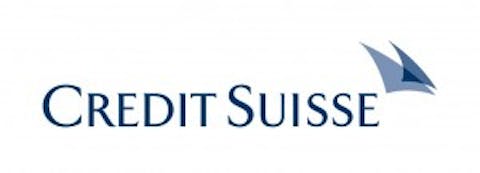On this day in economic and business history…
Before it became the banking capital of the world, London first had to establish its banks. That process began on July 5, 1672, when Richard Hoare set up the goldsmithing business that would become C. Hoare & Co., the oldest continuously operating bank in the United Kingdom. The Hoare bank was the vanguard in a wave of 17th-century English goldsmith banking operations, and today it’s the only surviving major and privately owned bank in the city. It was guided by 11 generations of Hoares until hiring its first non-family CEO in 2009, and the Hoare family continues to be majority owner, which makes C. Hoare & Co. one of the oldest family-owned and -operated firms in the world, as well as one of the oldest banks.

A neutral banking powerhouse
The original purpose of the new bank was to finance the expansion of the railroad network (e.g. the Nordostbahn/North-East Railway) as well as further industrialization in Switzerland. The founding of the company was a huge success: Initial stock was issued with a value of three million francs, but within just three days the total value of subscriptions amounted to 218 million francs.
The bank under Escher was a major financier of Swiss railway expansion — which was to be expected of a bank led by Switzerland’s chief proponent (and major owner) of private railroads. It also went on to play a pivotal role in developing other Swiss industries, and it would have a hand in modernizing the Swiss currency. Credit Suisse Group AG (ADR) (NYSE:CS) was an early internationalist: Its first foreign office opened in New York City in 1870. This global expansion also helped drive the growth of Credit Suisse Group AG (ADR) (NYSE:CS)’s burgeoning insurance operations.
By the 20th century Credit Suisse Group AG (ADR) (NYSE:CS) had begun to expand from its financier role to become more of a retail bank. Switzerland, while not immune to the Great Depression, survived the two wars that bookended the Depression thanks to a well-known national neutrality policy. As a result, Credit Suisse Group AG (ADR) (NYSE:CS) became both a major financier of postwar reconstruction and a national headache when Holocaust survivors later filed a class-action lawsuit over problems retrieving their dead relatives’ assets.
Credit Suisse began to expand aggressively during the 1990s with moves including the acquisition of New York investment bank First Boston. Credit Suisse is now one of the world’s largest banks, with more than $1 trillion in total assets.
Ronald gets a promotion
The article The Birth of Two Legendary Banks originally appeared on Fool.com is written by Alex Planes.
Fool contributor Alex Planes holds no financial position in any company mentioned here. Add him on Google+ or follow him on Twitter @TMFBiggles for more insight into markets, history, and technology.The Motley Fool recommends McDonald’s and NYSE Euronext. The Motley Fool owns shares of McDonald’s.
Copyright © 1995 – 2013 The Motley Fool, LLC. All rights reserved. The Motley Fool has a disclosure policy.





